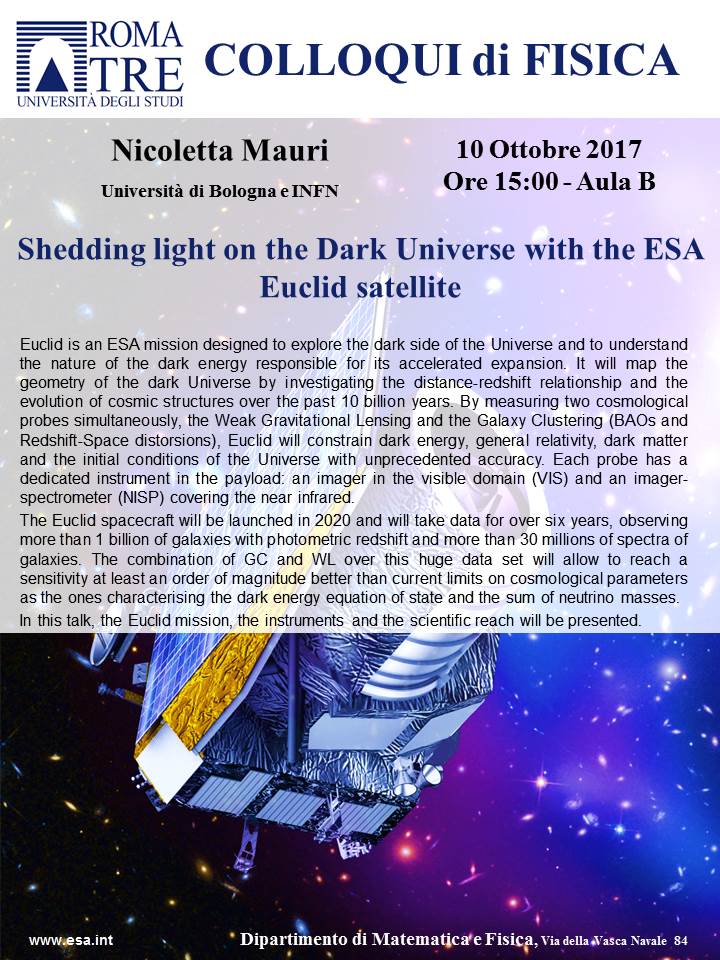 Shedding light on the Dark Universe with the ESA Euclid satelliteNicoletta Mauri 10-10-2017 - 15:00 AULA B - Via Della Vasca Navale 84
Euclid is an ESA mission designed to explore the dark side of the Universe and to understand the nature of the dark energy responsible for its accelerated expansion. It will map the geometry of the dark Universe by investigating the distance-redshift relationship and the evolution of cosmic structures over the past 10 billion years. By measuring two cosmological probes simultaneously, the Weak Gravitational Lensing and the Galaxy Clustering (BAOs and Redshift-Space distorsions), Euclid will constrain dark energy, general relativity, dark matter and the initial conditions of the Universe with unprecedented accuracy. Each probe has a dedicated instrument in the payload: an imager in the visible domain (VIS) and an imager-spectrometer (NISP) covering the near infrared. |

